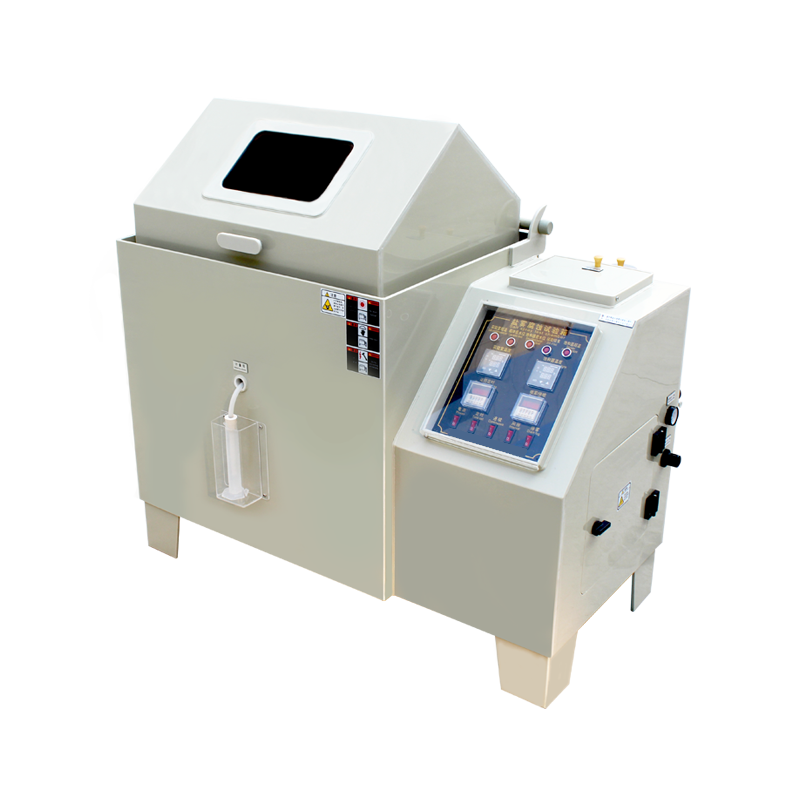Salt spray test chambers, also known as salt fog or corrosion test chambers, are critical instruments in quality assurance and product durability testing. Their application spans multiple industries, including automotive, aerospace, electronics, and coatings manufacturing. The fundamental purpose of these chambers is to simulate harsh environmental conditions, particularly salt-laden atmospheres, to evaluate the corrosion resistance of materials and surface treatments. Given the increasing demand for durable and long-lasting products, the integration of salt spray testing in production processes has become indispensable for manufacturers aiming to meet international quality standards and regulatory requirements.
Functional Importance in Industrial Applications
Corrosion remains a primary cause of material degradation, leading to significant financial losses and safety concerns. Industries such as automotive and aerospace rely heavily on salt spray testing to ensure components withstand prolonged exposure to corrosive environments. For instance, vehicle manufacturers subject metal parts, fasteners, and coatings to accelerated corrosion tests to guarantee performance in coastal or winter road conditions where de-icing salts are prevalent. Similarly, electronic connectors and enclosures must pass rigorous salt fog tests to prevent failure due to oxidation.
The maritime and offshore industries face extreme exposure to saline conditions, making salt spray testing a mandatory step in material selection. Coatings and paints used in shipbuilding, oil rigs, and coastal infrastructure undergo standardized tests like ASTM B117 or ISO 9227 to verify their protective properties. Without such evaluations, premature corrosion could result in structural failures, posing severe operational risks.
Compliance with International Standards
Regulatory bodies and industry standards mandate corrosion resistance testing for product certification. The ASTM B117 standard, established by the American Society for Testing and Materials, outlines the procedure for neutral salt spray testing, widely adopted across North America and Europe. ISO 9227 provides an internationally recognized framework, ensuring consistency in test methodologies. Compliance with these standards is not optional but a prerequisite for market access, particularly in sectors where safety and longevity are non-negotiable.
Manufacturers exporting products to regions with stringent environmental regulations must demonstrate adherence to these testing protocols. Failure to comply can lead to rejected shipments, legal penalties, and reputational damage. Thus, investing in a high-quality salt spray test chamber is not merely an operational choice but a strategic necessity for global market competitiveness.

Economic and Operational Advantages
While the initial cost of a salt spray test chamber may appear substantial, the long-term economic benefits outweigh the expenditure. Early detection of material weaknesses allows manufacturers to refine production processes, reducing warranty claims and recalls. For example, an automotive company identifying corrosion-prone components during R&D can modify coatings or alloys before mass production, avoiding costly post-market failures.
Moreover, in-house testing capabilities eliminate dependence on third-party laboratories, accelerating product development cycles. Companies can conduct iterative tests, rapidly validating design improvements without external delays. This autonomy enhances efficiency, particularly for industries with tight production schedules.
Technological Advancements in Salt Spray Testing
Modern salt spray chambers incorporate advanced features such as programmable controllers, real-time data logging, and multi-corrosion test modes (e.g., cyclic corrosion testing). These innovations enable more precise simulations of real-world conditions, surpassing traditional continuous salt fog exposure. Cyclic testing, which alternates between salt spray, humidity, and drying phases, provides a more accurate assessment of how materials perform under fluctuating environmental stresses.
Automation has further streamlined testing processes. Touchscreen interfaces, remote monitoring, and automated report generation reduce human error and enhance repeatability. Such technological integration ensures that manufacturers maintain consistency in quality control while minimizing labor costs.
Industry-Specific Case Studies
-
Automotive Sector – A leading European car manufacturer implemented cyclic corrosion testing for aluminum alloy wheels. By identifying a vulnerable coating formulation early, the company avoided field failures in high-humidity markets, saving an estimated €2 million in recall costs.
-
Electronics Industry – A semiconductor producer used salt spray testing to validate the durability of conformal coatings on circuit boards. The results guided the selection of a silicone-based coating, extending the lifespan of industrial sensors deployed in coastal areas.
-
Marine Equipment Suppliers – A manufacturer of stainless steel fasteners for offshore platforms conducted accelerated corrosion tests, leading to the adoption of a superior passivation treatment. This adjustment improved product longevity by 40%, securing long-term contracts with naval contractors.
The indispensability of salt spray test chambers in manufacturing is evident across diverse sectors. From ensuring regulatory compliance to enhancing product reliability, these systems play a pivotal role in modern industrial operations. As corrosion-related challenges persist, manufacturers must prioritize robust testing methodologies to sustain competitiveness and customer trust. Investing in state-of-the-art salt spray testing equipment is not an option but a fundamental requirement for any enterprise committed to delivering durable, high-quality products.
For industries where material failure is not an option, the salt spray test chamber stands as an essential guardian of quality and performance.












